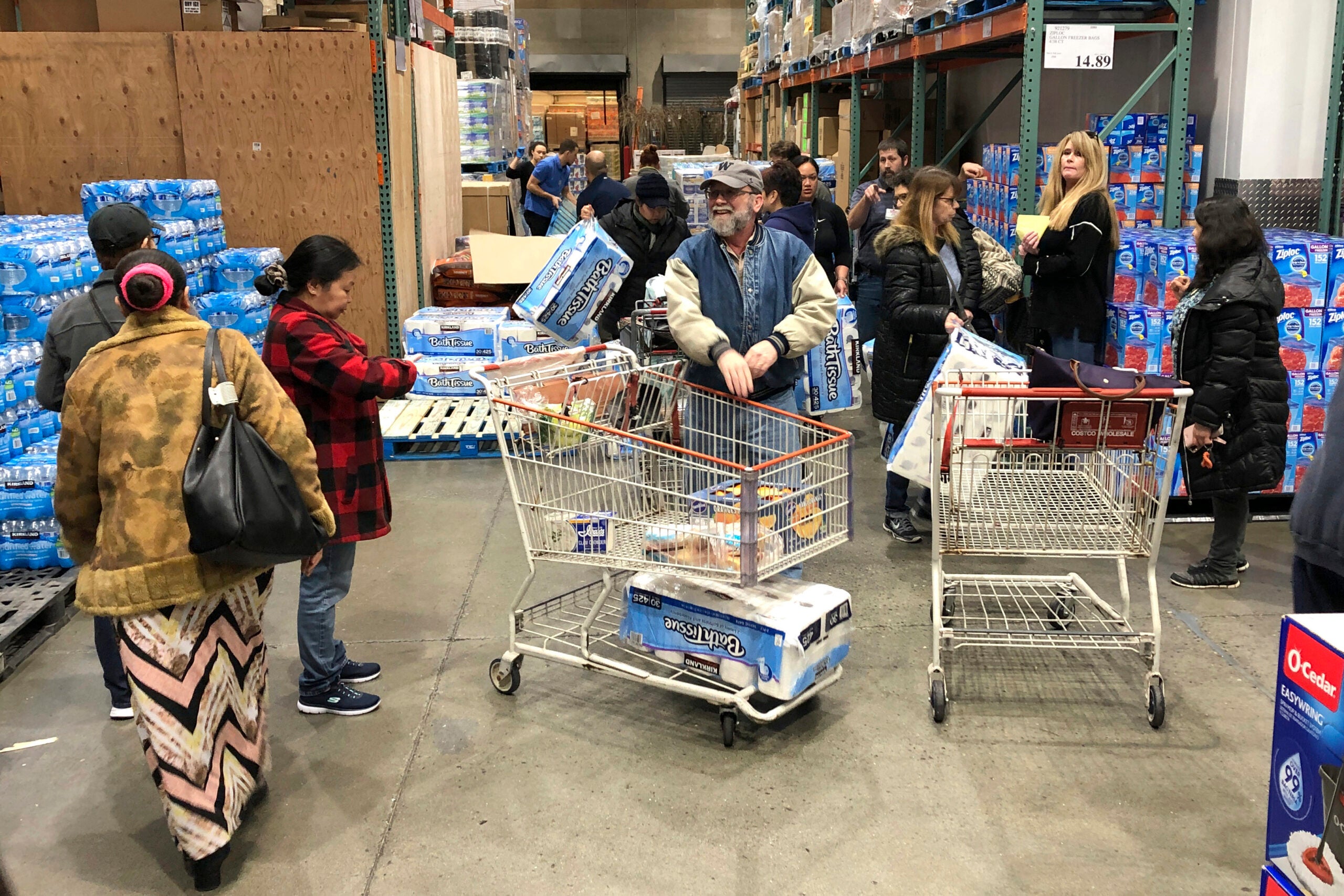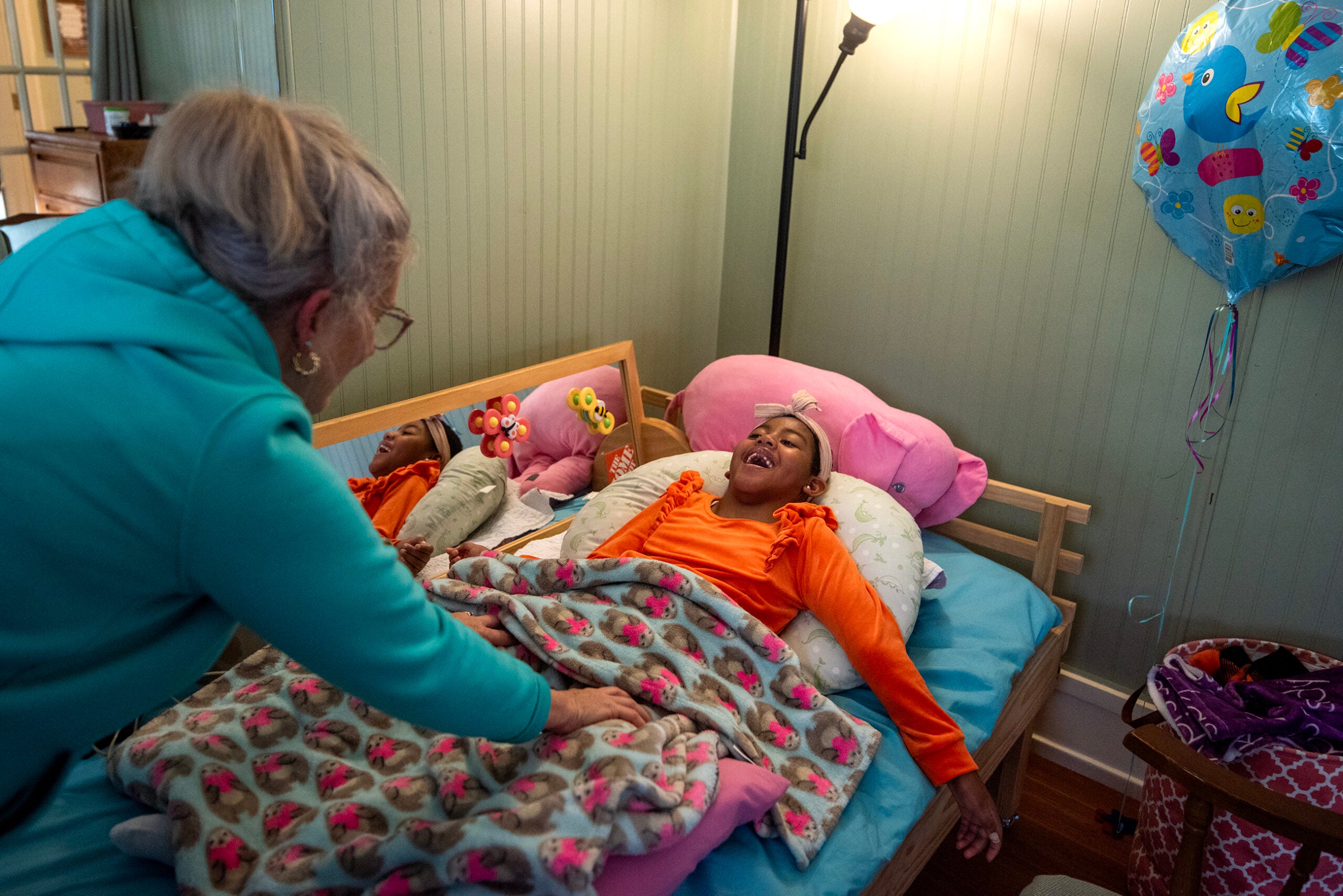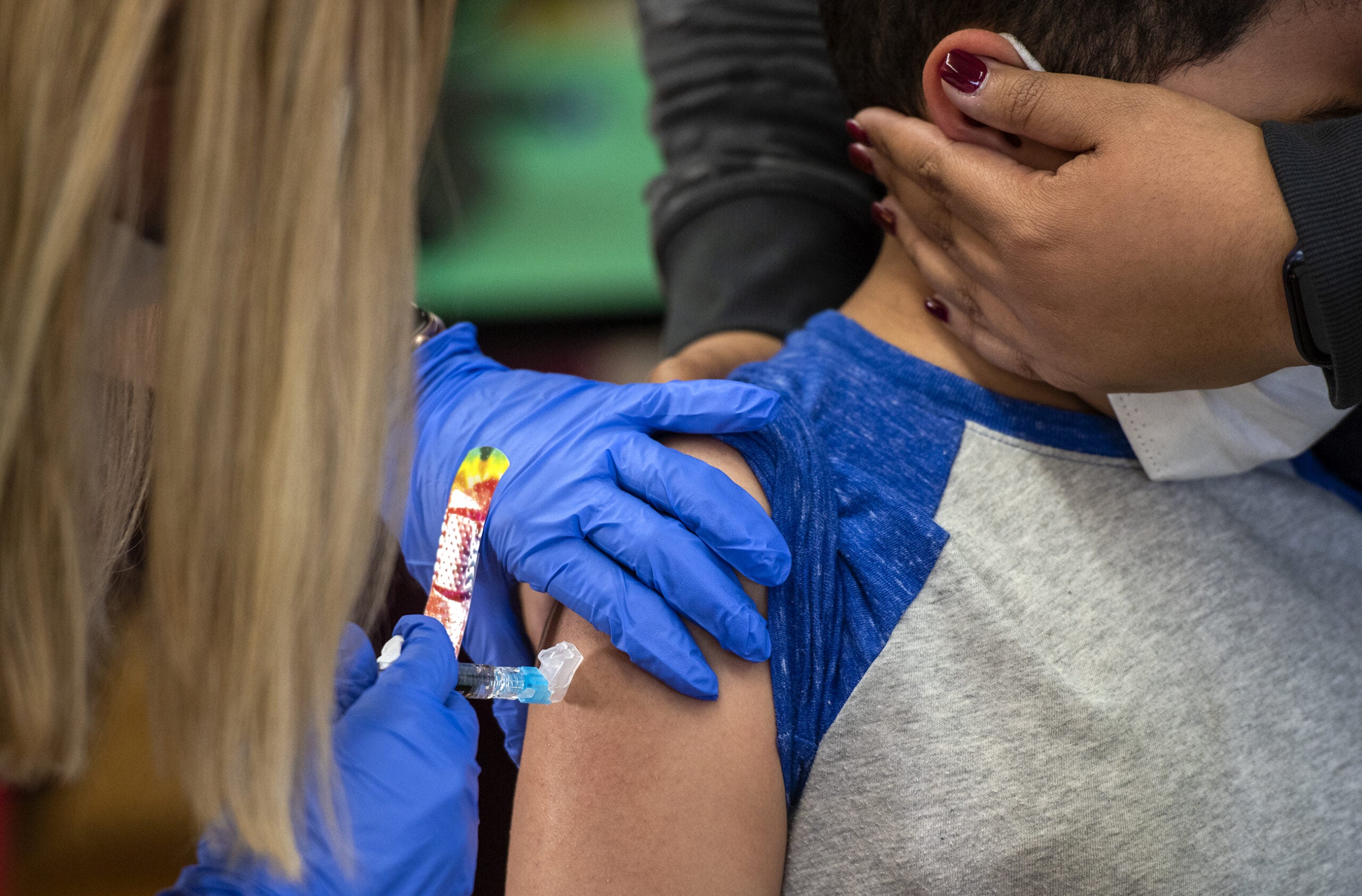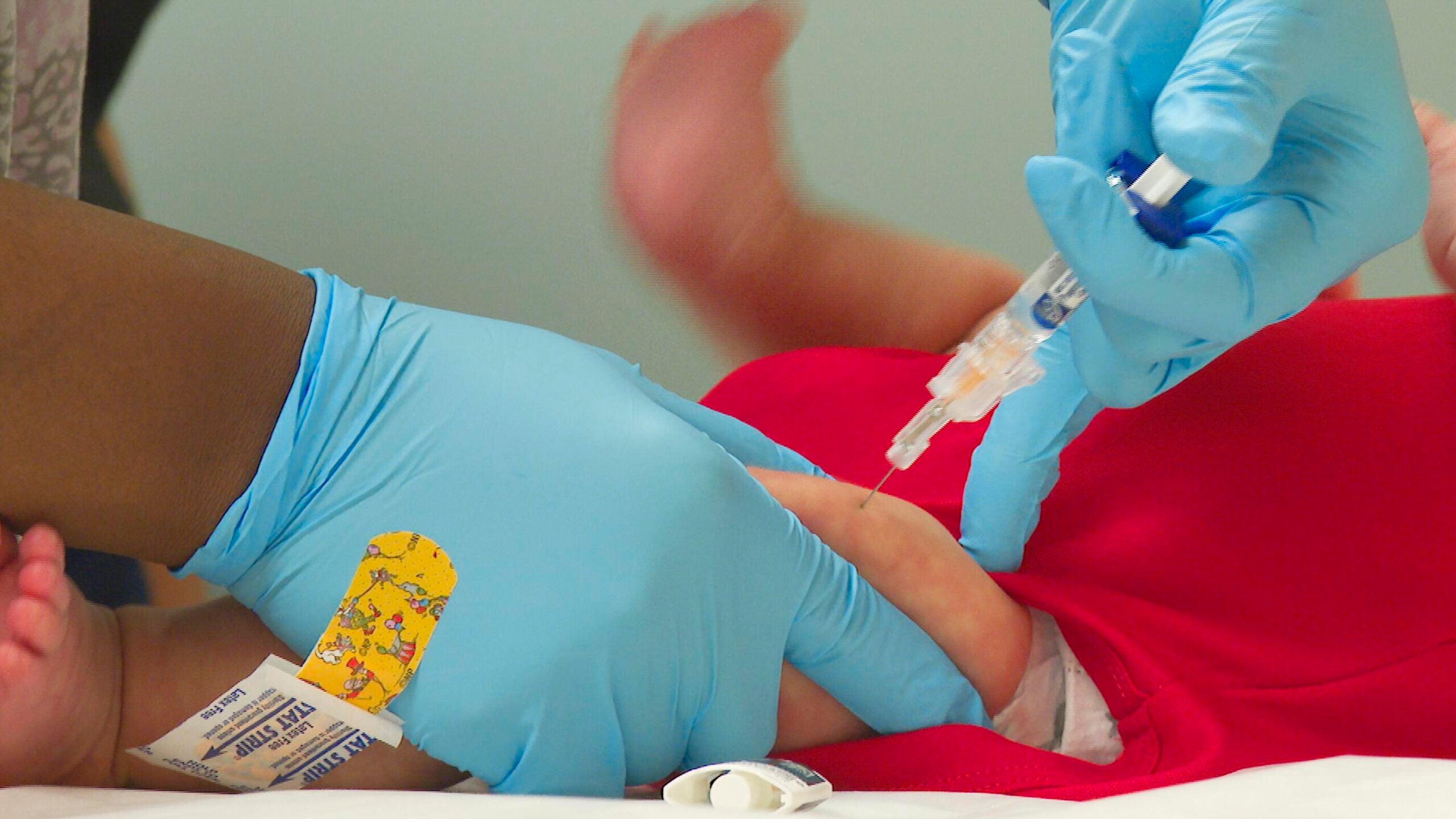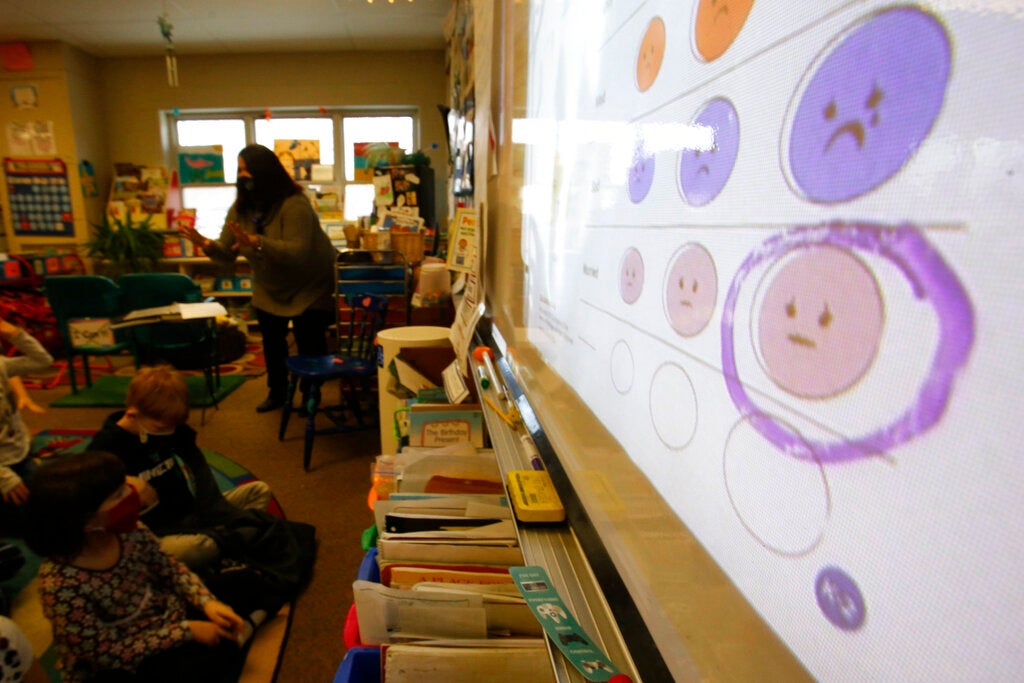Toilet paper is flying off of shelves and hand sanitizer is regularly out of stock. Schools are turning to online learning and the regular hum of university campuses is quieting.
Children either experiencing these abnormalities or living them out might be asking, “What’s happening?” or maybe they’ve worked themselves into a panic.
Tara Powell, an assistant professor of social work at the University of Illinois whose research focuses on trauma recovery in children, youth and families, spoke with Kate Archer Kent on WPR’s “The Morning Show” to talk about facts that parents can arm children with as they navigate this chaotic viral outbreak.
News with a little more humanity
WPR’s “Wisconsin Today” newsletter keeps you connected to the state you love without feeling overwhelmed. No paywall. No agenda. No corporate filter.
This interview has been edited for brevity and clarity.
Kate Archer Kent: When parents and caregivers explain COVID-19 and how it’s spread, where should they start this conversation with kids?
Tara Powell: One of the areas to start the conversation is to ask your child what they know and what questions they have. It’s likely that children have heard a bit about it so far. Ask them about their concerns and then provide them with accurate and clear information depending on their age range and developmental level.
Children might have underlying questions that you don’t know or may have thoughts or worries. And that’s one of the first things that parents can do is just really understand what’s going on with my child and what they want to know.
KAK: They may want to know what a pandemic is now that this is a pandemic. How do we explain that?
TP: It’s a big word and a lot of children may have not heard it before. And we don’t want to instill fear in the children at all. But we want to give them information that a pandemic means people can catch the illness anywhere. It may have started in China, moved to Europe and now is in the U.S., but that doesn’t mean that if somebody catches the virus, it’s definitely going to be severe or somebody is going to get really sick.
KAK: Are there some misconceptions that kids may have when they look to people of other cultures who are from China?
TP: One of the things that we need to do to help our children understand a virus or a pandemic is helping them know that just because it starts in one place — this one started in China — that doesn’t mean that it’s because of the Chinese culture in any way, shape or form. It could have started anywhere. And we want to make sure that they don’t have those misconceptions, even if they may hear it from other kids at schools or other people and the media.
We just want to make sure that they have accurate information so they know a virus doesn’t discriminate. It can hit anybody at any time in any place.
KAK: Another conversation we’re having a lot is good hygiene and washing hands. What can we say there around how kids take care of their bodies?
TP: This is a really good time to reinforce hygiene. One of the wonderful things you can do is give them a sense of agency and a sense of control over how healthy they are and protecting themselves. Reinforce washing their hands for 20 seconds. Now, that can seem like a long time. Singing the birthday song twice is 20 seconds.
One fun thing that you could do with your child is to have them think about a song that they really like and practice having them sing it for 20 seconds while they wash their hands.
KAK: Can you explain how parents might approach schools or sporting events being canceled or explaining why parents are working from home?
TP: In terms of communicating it to children, let them know that it’s not that there’s a threat to their safety, but rather it’s a precaution to keep them safe. They’re closing so the virus doesn’t spread more. It’s all about safety. And I think that’s one of the key things that we need to message to children.
KAK: Kids might feel pretty helpless in this. How can we help them with those emotions?
TP: We do want to provide them with information. If they have questions, answer them.
But at the same time, don’t have the TV news on all the time because that can also aid in a bit of helplessness. If they’re hearing different stories over and over again, it actually can elicit more anxiety.
One thing that we really have to consider is our anxieties as parents. Let’s keep our worries in check and think about what we say in front of the children. If we’re anxious and talking about our anxieties, they’ll hear that, and that can actually affect them.
KAK: If parents are considering canceling planned trips because of the outbreak, what can they do to ease their children’s disappointment?
TP: We know the virus is ever evolving. And so you have to use your best judgment on how you can keep them safe.
If you do have to cancel, tell them that there are times that you can reschedule and then also have other activities they can look forward to.
KAK: One of the questions that I get from my kids is, “Mom, when will this be over? When will this stop?” How should we respond to questions like that?
TP: It’s OK to say that while there’s a lot we don’t know, we know that in certain areas right now the virus has been contained. And it’s because the governments and communities took measures to make sure that the spread was stopping. So while you don’t know exactly the timeline, you know that by taking these measures, we can actually contain the virus and reduce the amount of spread which can shorten the timeframe that this is going on.
KAK: What are some signs of anxiety in young children who may not be able to express what they’re feeling?
TP: Watch for regressive behaviors, for example if they’re potty trained but wetting the bed or they want to sleep with you more often during the night. School-aged children may repeatedly ask questions or may express guilt about different things that aren’t their fault.
Wisconsin Public Radio, © Copyright 2025, Board of Regents of the University of Wisconsin System and Wisconsin Educational Communications Board.

